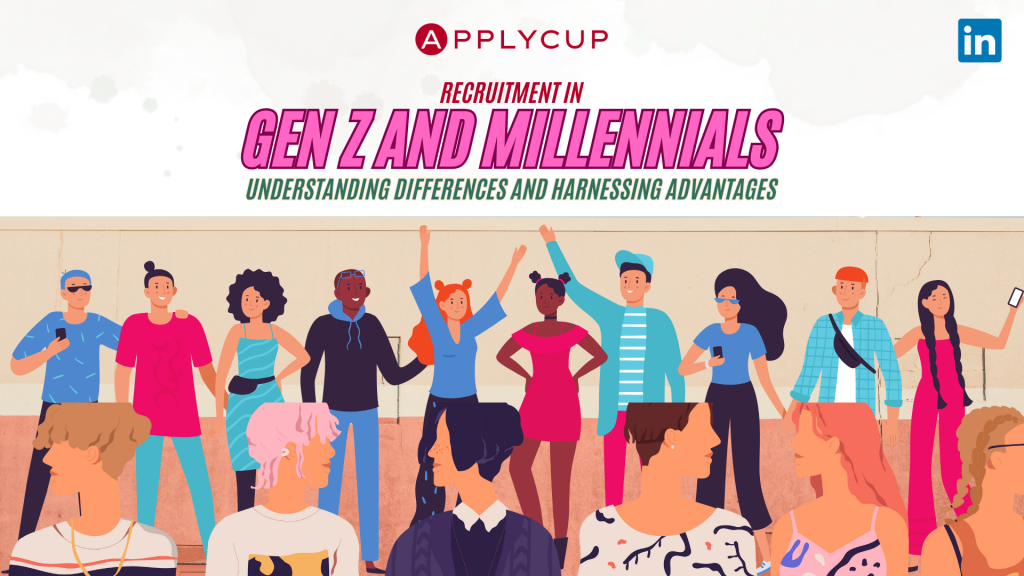
Recruitment in Gen Z and Millennials: Understanding Differences and Harnessing Advantages
Recruiting and retaining top talent is crucial for organizations to thrive in today’s competitive landscape. As the workforce continues to evolve, it is essential to understand the differences between Generation Z and Millennials, the two dominant generations in the workforce, and leverage their unique advantages.
Gen Z, born between the mid-1990s and early 2010s, and Millennials, born between the early 1980s and mid-1990s, share some similarities but also exhibit distinct characteristics. Understanding these differences is key to tailoring recruitment strategies effectively.
Firstly, Gen Z is the first fully digital-native generation, having grown up with technology at their fingertips. They are adept at navigating digital platforms and are more likely to respond positively to recruitment efforts that leverage technology, such as social media, online job boards, and virtual interviews. On the other hand, Millennials, while also tech-savvy, have experienced the transition from analog to digital and may value a more personalized approach, such as face-to-face interactions.
Secondly, Gen Z values diversity and inclusion more than any previous generation. They seek workplaces that prioritize equality and fairness, making it essential for organizations to showcase their commitment to diversity during recruitment. Millennials also value diversity but tend to prioritize work-life balance and meaningful work opportunities.
Additionally, Gen Z and Millennials have different career aspirations. Gen Z values stability and financial security, while Millennials prioritize personal growth, work flexibility, and a positive impact on society. Employers can tap into these aspirations by highlighting opportunities for career advancement, professional development programs, flexible work arrangements, and corporate social responsibility initiatives.
To harness the advantages of these generations, organizations should adapt their recruitment strategies accordingly. This may involve utilizing social media platforms, creating an engaging online presence, and showcasing a strong employer brand that aligns with the values of Gen Z and Millennials. It is also crucial to establish transparent communication channels and provide opportunities for meaningful engagement throughout the recruitment process.
In conclusion, understanding the differences between Gen Z and Millennials and leveraging their unique advantages is essential for successful recruitment. By tailoring recruitment strategies to align with the preferences and values of these generations, organizations can attract and retain top talent, ensuring long-term success in the evolving workforce.

